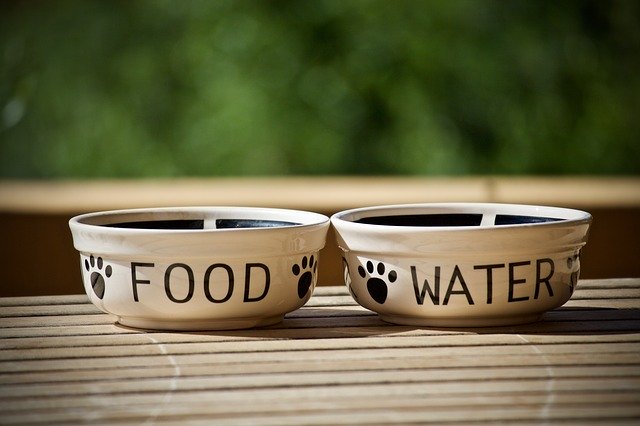Bland Diet for Dogs: Tips for Feeding Your Pet

If your dog is vomiting or having diarrhea, it is always best to call and discuss it with your veterinarian first, as these can be symptoms of something serious. Often, veterinarians will recommend feeding your dog what is referred to as a bland diet if they are having mild gastrointestinal upset (vomiting, diarrhea).
What is a “bland diet”?
While bland is synonymous with dull, uninteresting and unimaginative, a bland diet for dogs is actually very useful in some cases, so if it has been recommended for your dog to be on a bland diet, here is some helpful information about it.
Bland diets for dogs are typically low in fiber, low in fat and easily digestible to give an upset GI tract a rest. Effective bland diets typically are made up of a single, lean source of protein and a single, simple carbohydrate source. There are several commercial prescription GI diets, or you can make your own.
How to prepare homemade bland dog food
If you are going to make your own homemade bland diet, there are some important tips.
- Combine ingredients in 2:1 ratio of carbohydrate to meat (for example: 2 cups of cooked rice to 1 cup of cooked meat).
- It is important to boil the meat source to allow draining and separation of as much fat as possible. Cook the meat well until it is nice and tender.
- Recommended meat sources include: boneless, skinless chicken, lean ground beef and ground turkey.
- After boiling the meat, drain and allow to cool completely. Then cut the meat into small pieces.
- Do not use any additives, such as butter, salt, garlic or other seasoning.
- Good carbohydrate choices are well-cooked white rice or pasta.
- Cooked diets can be refrigerated for several days or frozen for longer storage.
Dogs with diarrhea only can also benefit from adding pureed pumpkin to their bland diet. Make sure that you use 100% pure canned pumpkin and not pumpkin pie filler.
How much do I feed my dog on a bland diet?
Typically in the case of minor GI upset, it is recommended to not feed any food for 6-24 hours (depending on the patient) before starting to feed again. You do however want to give small amounts of water. If they are keeping water down after this rest period, you can try offering the bland diet.
When beginning the bland diet for dogs, start feeding with very small amounts (from 1 tablespoon to a small meatball, depending on the type and size of your dog). If no vomiting occurs after 2-3 hours, they can be offered a little more. Frequent, small meals should be attempted, as long as there is not any more vomiting. Gradually, amounts can be increased if your dog is tolerating the smaller amounts given.
Generally, a bland diet is recommended to continue for 1-3 days after all GI symptoms have resolved, as long as symptoms are improving. You can then gradually mix in your pet’s regular food over the next couple of days until they are back on their regular diet. Homemade bland diets are not nutritionally complete and are not recommended long-term.
What if a bland diet doesn’t help my dog?
Bland diets can be very helpful, but there are many conditions that cause vomiting and/or diarrhea that are more serious and require diagnostics and/or further treatment. If vomiting continues, they are lethargic, not eating, not urinating, diarrhea is worsening or not resolving or you are seeing blood in vomit or stools, it is recommended you call ASAP to discuss with your veterinarian.
– Dr. Kelly Stern

